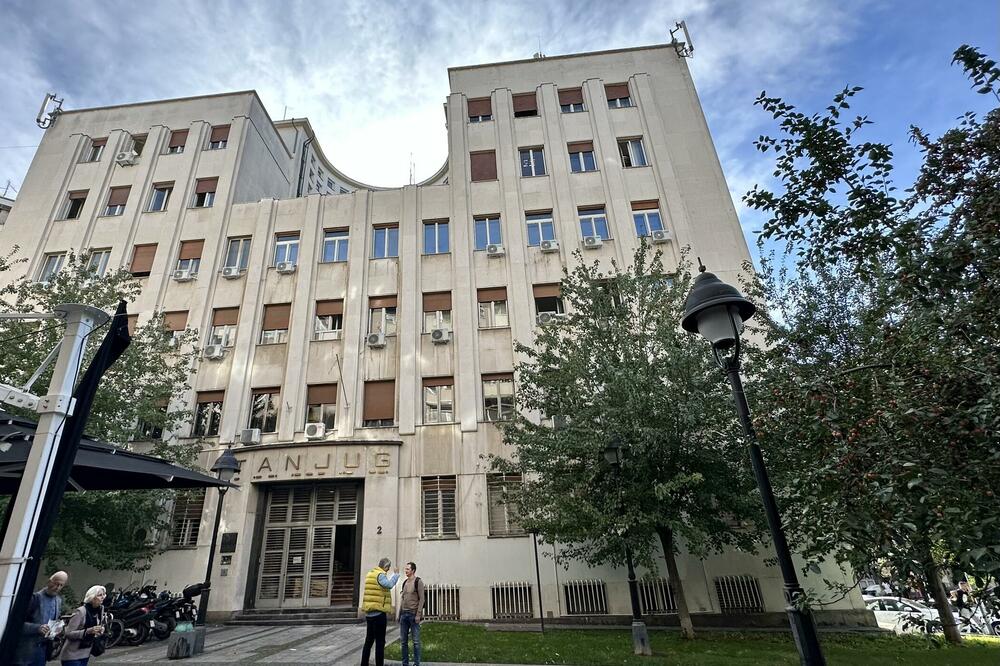He was there when I came into the world. He didn't wait for me to learn the letters, so that he could get into my head. In the afternoon, father would quiet us children and turn up the radio. The news, and then the "News of the Day", were full of incomprehensible sentences at which the father frowned, sometimes grumbled. He would even get away with a few curse words. Even then, I remembered a mysterious word whose meaning I could not fathom - Tanjug. "As reported by Tanjug" or "As reported by the Associated Press, reported by Tanjug". You could also hear "as reported by Tas, transmitted by Tanjug".
I concluded that the strange words were actually the names of the people telling the stories. Tanjug, the main one among them, would sometimes tell other people's stories, and more often only his own.
When I grew up with newspapers, I realized that behind most of the news there is a news agency with that name. Abbreviation for unusual expression Telegraph Agency of the new Yugoslavia it became a colloquial noun for which no one sought the meaning. It was filled with a kind of solemn seriousness and reliability. In today's language, one would say that the word has become a brand on the one-party Yugoslav media map.
Student Tanjug
In the mid-eighties, I had to know everything about Tanjug - as a journalism student. It was late autumn when the professor of theory and practice of journalism, Vlatka Krsmanović, told us that a visit to Tanjug was a mandatory part of our study program.
That meant boarding the evening train to Sarajevo. About forty of us in one wagon, a real wasp. Future journalists, youthfully nonchalant, looked forward to the excursion to Belgrade as a good opportunity to make student life unusual. They intended to turn the trip into a party.
It is difficult to explain to today's generations what the trains of that time meant to us. They ate, slept and drank in the compartments. It was wise. Some Yugoslav friends even made love on the seats above which were photos of cities, holding the door handle with their hand. Trains in the direction of the sea were crowded in the summer, but the evening train from Sarajevo to Belgrade was only solidly full.
Needless to say, there was sipping, singing and laughing in the compartments until late at night. When the professor and the girls were overcome by sleep, a few of us pulled out in the direction of the dining car. Since there are no more trains of this type, and the tracks are overgrown with weeds in some areas, perhaps the elderly should be reminded of these birkuzas on wheels. And for the younger ones, the verses of the early Bora Čorba could stimulate their imagination: "I am the Salonica of the dining car". It's the guy holding on to the bar while the train lurches and drowns his sorrows with drink. And the addition about the atmosphere in the trains of that time: "The whole carriage stinks of dirty feet, chicken, beer, drunk jerks". Without further ado, that night, Nermin, Tufko, Jure, Majo - forgive me those I have forgotten - piled up empty beer bottles standing at the counter in the dining car. Jure taught us to sing "If it wasn't for jubavi, there wouldn't be a suite". With the increasing flow of beer, our hearing was getting worse. In the end, we fought, and Jure resignedly sipped his beer. We only managed to sleep for an hour or two. The Belgrade Railway Station welcomed us with the sigh of locomotives and the shouts of suitcase carriers.
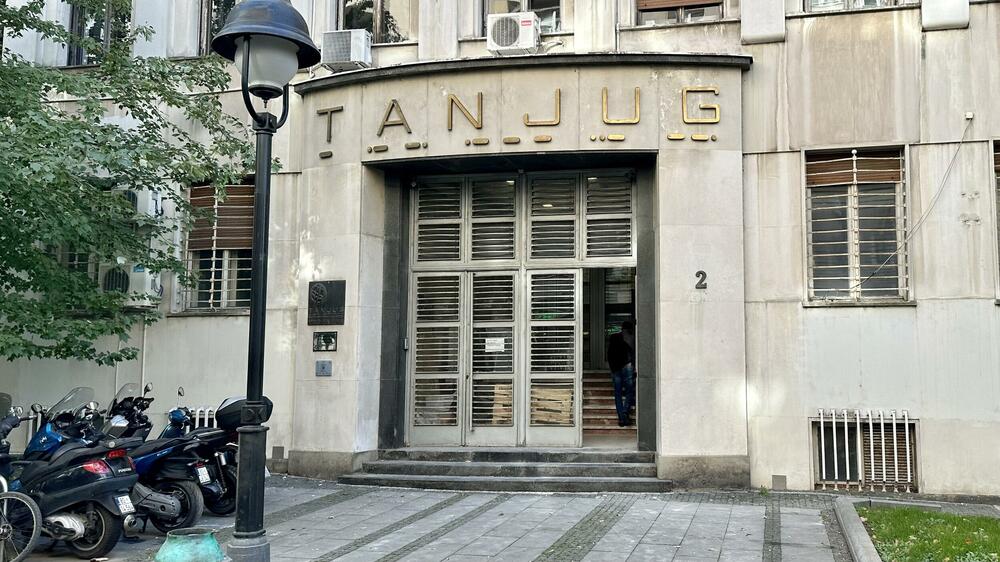
I remember the tour of Tanjug as if through a fog. I expected to experience some kind of journalistic initiation. And only an older journalist, with imposing dark circles, obviously more tired than us, took us through the building and the newsrooms. I wondered what dining car he spent the night in, our older brother in suffering.
PRIZAD raises the building
I liked the building. Its origin was not a secret, but the authorities at the time almost routinely claimed that the real history begins with them, so no one was too interested in the pre-war history of the building. Now, as I drink coffee in the cafe behind that building, four decades after the hangover in Tanjug, I know that it originally had nothing to do with journalism.
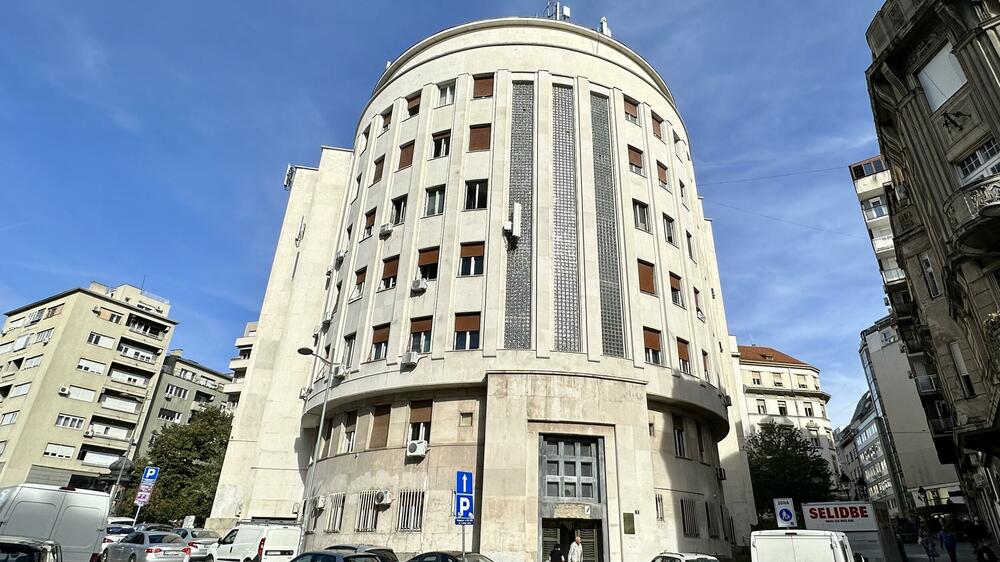
Where Obilić's venac turns steeply into Toplica's venac on the left, and the right continues to Carica Milica, in that triangle of streets, the building was completed in 1939. The client of the works was the Privileged Export Joint Stock Company, known by the abbreviation PRIZAD. His task was to encourage the export business of the Yugoslav kingdom. The administrative seat of the Company was designed by Bogdan Nestorović, one of the most important Belgrade real estate developers of the last century. It should be remembered that he designed the building of the Cooperative Home, which is today the headquarters of Radio Belgrade, and together with Aleksandar Derok, he significantly contributed to the present-day appearance of the temple of St. Sava in Vračar with his plans.
The PRIZAD building is a child of its totalitarian times. Italian and German fascist modernism as well as French monumentalism can be read from the architectural manuscript. A harmonious modern building with a facade devoid of ornaments, it is considered one of Nestorović's most successful works.
For the journalism student from Sarajevo at the time, the period from 1945 until the end of the sixties, when he started to read and write something down, seemed like a hazy prehistory. From today's perspective, a decade is only slightly longer than an instant. The first post-war purpose of the building in socialist Yugoslavia was in accordance with the elements of totalitarian modernism in its architecture: the Department for People's Protection - Ozna moved in there. Since 1946, Ozna has been divided into the military Counterintelligence Service (Kos) and the State Security Administration, known to all as Udba.
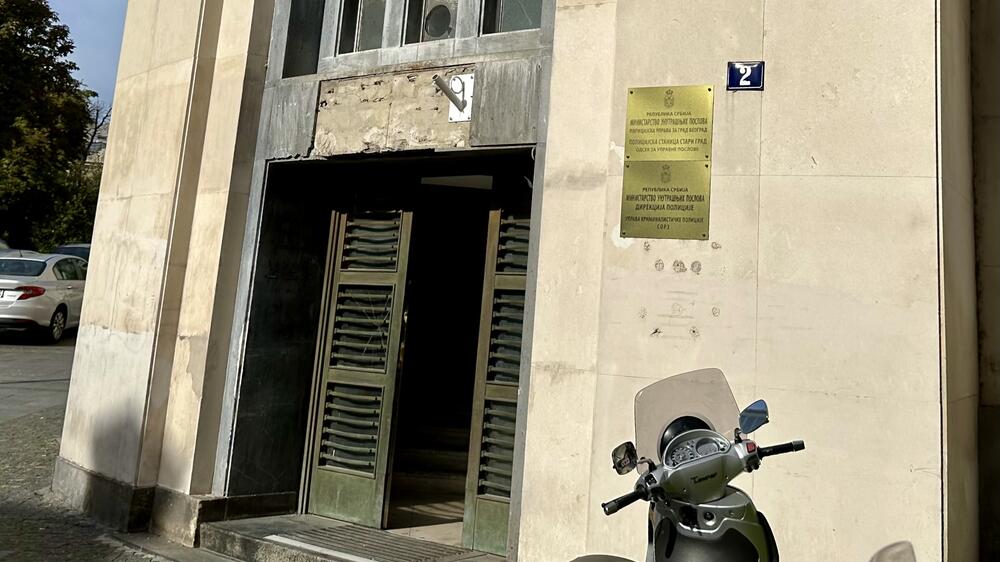
I am thinking about the plans for liquidation, eavesdropping, monitoring, misinformation, making life miserable for emigrants, dissidents and the "internal enemy", which were created in this big stone shell, in the shade of which I enjoy the Miholy summer.
Something of the police tradition has certainly been visibly preserved, because the building is too big for what is left of Tanjug, so next to the lower entrance there is a visible message on the boards of the Ministry of Internal Affairs informing us that parts of the city's Police Department as well as the criminal police are located there.
The hole above the door probably means that someone got in the way of the old inscription. Whatever it says on it.
Telegraph Agency of the new Yugoslavia
By the way, Tanjug itself was founded exactly eighty years ago, on November 5, 1943 in Jajce. The Communist Party of Yugoslavia wanted to become more professionally involved in the propaganda and information war - the partisan guerrillas had already hardened themselves in battle, but not on the information front. At the moment when he appeared as the founder of Tanjug, Moša Pijade had behind him a development path from the painting school in Munich and Paris, a Serbian war reporter from the Great War, a communist prisoner who spent 14 years in the king's dungeons translating Marx, to Tito's wartime commander of partisan units in Montenegro, from where he was withdrawn, they say, because of his merciless attitude towards enemies. The first director of Tanjug was Vladislav Ribnikar, a Sorbonne student and the man who created Politika into the most widely circulated and respected interwar newspaper.
At first, Tanjug relied on the Soviet news agency Tass, but with the meandering of socialist Yugoslavia in post-war geopolitics, it established cooperation with the largest Western news agencies as well as agencies of the non-aligned world.
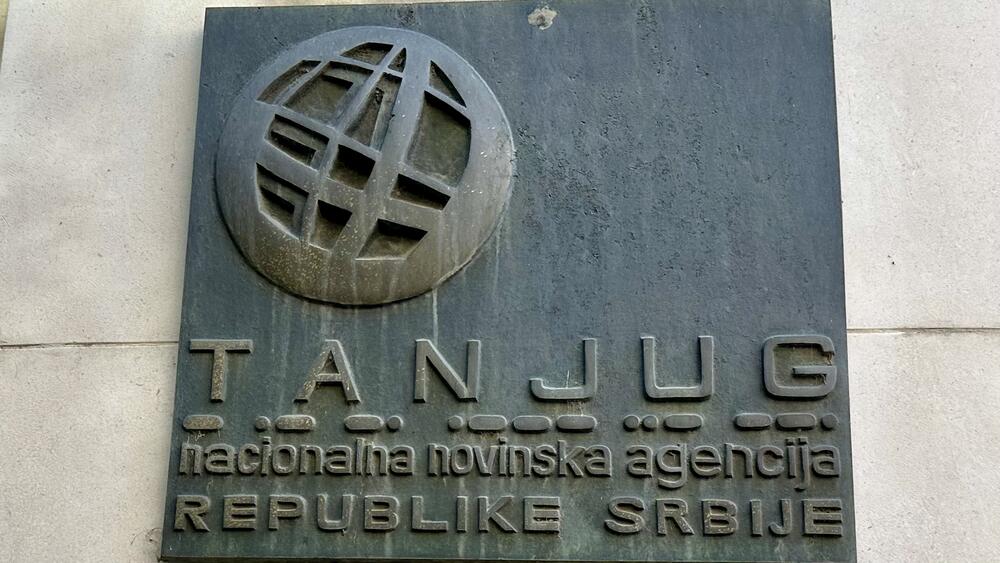
In the beginning of the sixties, Tanjug moved into the building that I also got to know from the inside. He most tenaciously kept the Yugoslav "J" in his name, although he moved from one country to another without moving from one place to another. It was the national news agency of the Federal Republic of Yugoslavia, the State Union of Serbia and Montenegro, and finally Serbia. However, no one thought of renaming it to the Telegraph Agency of Serbia - Tas.
Afterlife Acronym
Tanjug officially ceased operations in 2015 by decision of the authorities. There is a popular saying that death row inmates sometimes live longer. Thus, for years, the phantom Tanjug produced news and reports that could be called more or less washed-up government bulletin journalism.
Since such a situation of factual life after legal death became absurd, the state "sold" Tanjug to the company Tačno doo, which is backed by the capital of singer Željko Joksimović and Kruševac local media collector Radoica Milosavljević. It is, say some, about renting the brand for ten years. Others, in their interpretation of the current status, refer to the agreed "assignment of the use of property rights", whatever that means, in order to conclude that Tanjug is not private property, but it can be managed as if it were.
Tanjug thus passed away for the third time. The first time he was instrumentalized by Milošević. The second time when Vučić likened him and put him to rest. The third time when it was assigned to "exploitation of property rights". Government project financing provides profitability for its current private reincarnation. And such a Tanjug remains true to himself from the nineties - he tirelessly produces a positive image of the government sector. Anyone who wants to, should look at their website. He is very eloquent.
Finally, it's time to remember Vlatka Krsmanović, a Yugoslav woman from Sarajevo. In 1992, she refused to submit to the tribal recomposition of reality, daring to criticize the violence organized and carried out by the Palian leadership. She was arrested at the beginning of the war and taken from Grbavica to Pale. When, based on numerous interventions, she was released after 26 days of imprisonment in the gymnasium, she reached Belgrade - they did not want to let her back to Sarajevo. I listened to the audio recording of her sad story, recorded upon her arrival in Belgrade. It is available online. She died in 1995 in exile in Malta. In fact, in those nineties, Tanjug, through which she led us a decade earlier, essentially died even before her, together with the country whose name is included in the acronym.
Bonus video:



